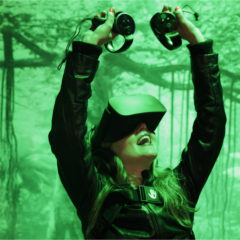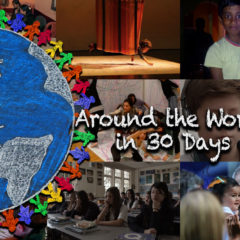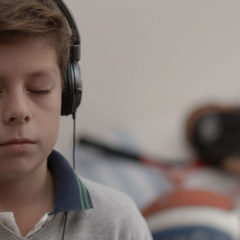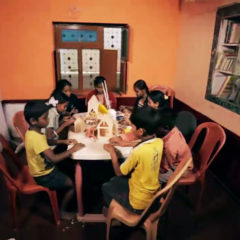The Global Search for Education: The Green Leaders of Tomorrow
“The teacher’s role in this journey is to ‘model advance learning’. They are there as a mentor, a guide, a coach, and most importantly, a co-learner.” – Glenn Chickering Our environment should be important to all of us. It is after all where we live. The Green School in Bali was founded by John and Cynthia Hardy who wanted to create a school focused on environmental stability. The big picture goals...
The Global Search for Education: The Reality of Deforestation – Coming to a Classroom Near You.
“When the viewer looks down, they’ll see their arms are branches, their body is the trunk, and when they move, the tree moves too.” – Winslow Porter Virtual Reality (VR) and Augmented Reality Markets are expected to reach US$162 billion by 2020. How can schools use virtual reality to make learning more engaging? Most of us don’t live in a rainforest but we do know that they are in great danger. Classrooms are...
Around the World in 30 Days – December 2018
C. M. Rubin’s Global Education Report The Dalai Lama once said, “If every 8 year old is taught meditation, we will eliminate violence from the world within one generation.” Mindfulness has become much more relevant and effective in a constantly changing environment. Clinical psychologist Dr. Addie Wootten insists that inducting young children into the principles of mindfulness early on in education allows them to focus more in class,...
The Global Search for Education: More Mindful Citizens Please
“We want mindfulness to be as common as brushing your teeth!” – Addie Wootten The Dalai Lama once said, “if every 8 year old is taught meditation, we will eliminate violence from the world within one generation.” Mindfulness has become much more relevant and effective in a constantly changing environment. Clinical psychologist Dr. Addie Wootten insists that inducting young children into the principles of mindfulness...
The Global Search for Education: Defying Tradition – Learning with Nooks
“Why should there be only one teacher in class? Why not everyone teach and learn?”- Abhijit Sinha India’s rural schools struggle with high rates of teacher absences and student dropouts. How do you educate youth without sufficient government funding, resources and teachers? Abhijit Sinha believes fixing the problem is about defying tradition and instead allowing youth to design their own education using the internet and...
The Global Search for Education: Draw, Dance, Innovate!
“We create a mechanism or an environment made up of a few simple but clear rules. Within this context, the children are free to explore autonomously.” – Alessandro Lumare Wanted: Learning that nurtures innovation, creativity and entrepreneurship. These skills play an essential role in helping us to flourish in a 21st century world. Art without rules or boundaries in which the body and mind are free to explore and...







Recent Comments